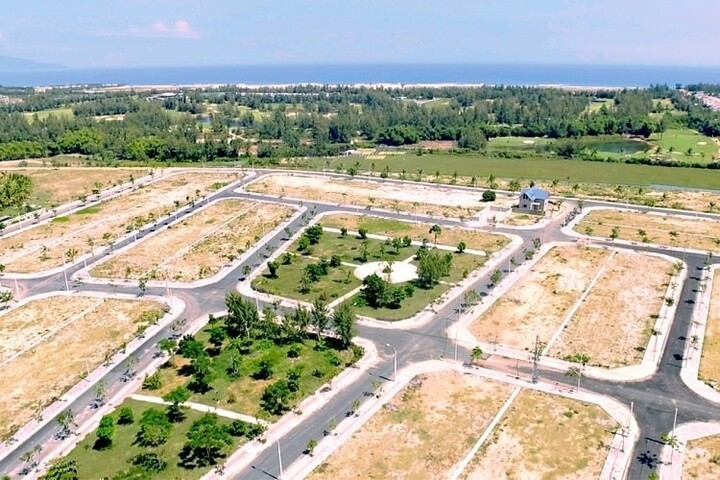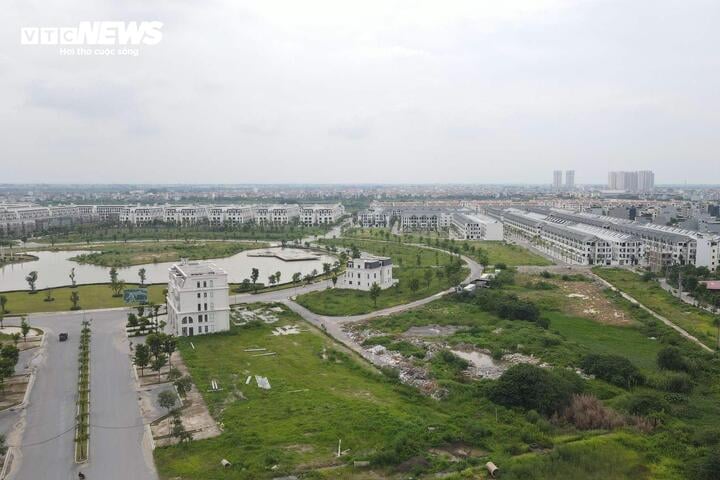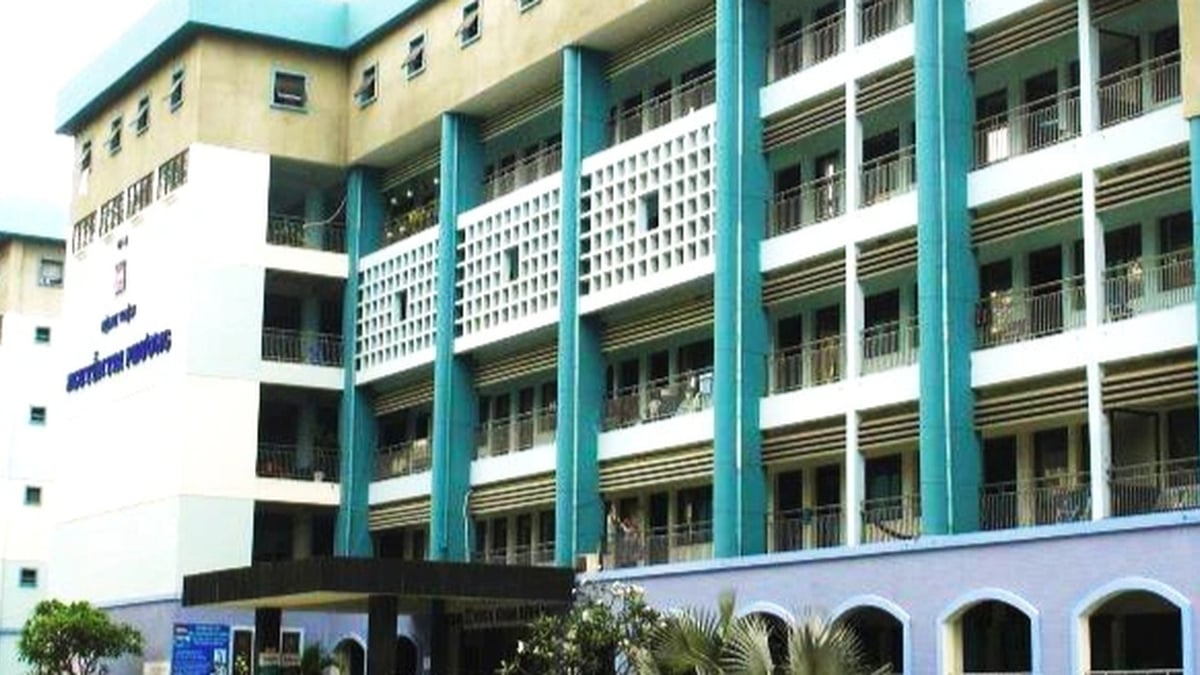Will house prices rise?
Before the information about the proposal to calculate a 20% tax on real estate transfer profits, Mr. Nguyen Minh Nhat - an experienced investor in Hanoi predicted that this policy could increase housing prices in big cities like Hanoi and Ho Chi Minh City because homeowners will add tax to the selling price.
If the tax is applied based on the ownership period, if the property is owned for less than 2 years, the expected tax rate of up to 10% is too high. For example, selling a house for 10 billion VND, the tax is up to 1 billion VND. In this case, the tax can also be immediately added to the selling price, causing the house price to increase.
Therefore, according to Mr. Nhat, with the aim of preventing speculation, it would be more reasonable to only tax the purchase and sale of second and third homes over time.
" I think that high transfer tax will increase land prices, and that fee will be passed on to buyers. What needs to be done is to tax vacant real estate. Those who leave land unused, not doing business, or not renting out must be taxed. Those who have more real estate but do not use it will be taxed more. Both individuals and real estate companies must calculate vacant land tax. Only then will land return to its true value, which is for living or for business and production, not for speculation like now, " Mr. Nhat shared his opinion.
Many experts also believe that imposing a 20% tax on real estate transfer profits will increase real estate prices, making it increasingly difficult for people with real needs to buy a house.
Mr. Dinh Minh Tuan, Director of PropertyGuru Vietnam Company in the South, analyzed: Real estate sellers often add all costs, including taxes, to the selling price. When the tax rate increases, the selling price will also increase and the final buyer may have to bear this additional cost.
20% tax on transfer profits could increase real estate prices (Illustration photo)
In addition, the actual profits of investors are affected, making real estate investment channels less attractive compared to other channels.
In addition, Mr. Tuan also said that calculating tax based on selling price and ownership period, the highest being 10% for holding period of less than 2 years (5 times higher than current) could cause transactions to decrease, and the secondary market to temporarily freeze.
Because the "surfing" mentality has been deeply ingrained in the investment mindset of many Vietnamese people, spanning many segments from land, apartments to low-rise buildings. They often tend to "sell when the price is right" so they flexibly shift capital flows to other assets that are more profitable at each time.
Mr. Pham Duc Toan, General Director of EZ Property, also warned that if the tax policy is not accompanied by a transparent and reasonable transaction value control mechanism, the market may react by "stagnating" in the initial stage. Investors may temporarily stop buying and selling to wait and see.
Meanwhile, those with real needs will face higher prices because sellers add tax to the transfer price.
Furthermore, the database on cost and expenses is not yet fully updated, especially for previous secondary transactions without clear invoices and documents. This can lead to disputes, when tax authorities cannot verify the cost price, and people believe that they are being overtaxed.
Sharing the same view, Mr. Nguyen Quang Huy - CEO of the Faculty of Finance - Banking (Nguyen Trai University) also said that this proposal could also cause housing prices to increase in the short term. Because, in the short term, the psychology of sellers may set higher prices so that buyers can "bear" the tax costs, especially in traditional speculative segments such as: land plots, townhouses in areas with virtual fever...
However, according to Mr. Huy, in the medium and long term, the market will have to readjust profit expectations. Real estate "buy to live, to use for real" will be stable, not affected. Speculative real estate will lose its appeal, leading to low liquidity and prices must be reduced to attract buyers.
Professor Dang Hung Vo, former Deputy Minister of Natural Resources and Environment (now the Ministry of Agriculture and Environment ) also said that taxing real estate transfer profits is unlikely to help reduce real estate prices.
The proposal to tax transfer profits focuses on income from the right to use real estate. This is a modern management method, but when implementing it, many countries have encountered difficulties due to poor management infrastructure and inability to calculate income. Therefore, they continue to have to deal with cases where income cannot be calculated.
Instead, to cool down housing prices, there must be a direct tax on property, such as a second property tax or an abandoned property tax.
“ I think we need to improve the quality of management to calculate income, instead of analyzing the case where income cannot be calculated, then do this or that. To calculate income, the only way is to raise the State price list to the same level as the market price, with an allowable error of 20% of the value, ” said Mr. Vo.
Taxable objects should be classified.
To ensure fair and reasonable tax policies, according to experts, it is necessary to classify the applicable subjects.
Experts say it is necessary to classify subjects for tax imposition (Illustration: Minh Duc)
Mr. Nguyen Quang Huy expressed his opinion that for tax policy to be effective, it is necessary to clearly classify the groups of subjects to apply tax. Accordingly, the sole owner of a residential property should be exempted or given special incentives. Transactions within the family, inheritance, and house exchange due to living needs should also have their own mechanisms.
The policy focuses on professional investment activities, especially short-term speculation. For this group, it is necessary to design a progressive tax according to the holding period, for example, selling within 1 year will have a high tax rate of 15-20%. If holding for 3-5 years, the tax rate will gradually decrease, holding for more than 5 years will be exempted or deeply reduced. This creates incentives for long-term investment, stabilizing the market.
In addition, it is necessary to build a transparent and public pricing data system to avoid the phenomenon of declaring virtual prices to evade taxes or create artificial differences.
In addition, there should be a flexible approach, with a roadmap and market support. Specifically, instead of immediately applying a fixed tax rate of 20%, it is possible to consider piloting in large cities or with clearly speculative real estate. The roadmap will increase gradually over time, with periodic impact assessments.
In addition, according to Mr. Huy, if we only impose taxes without simultaneously solving the problems of supply, land fund, project legality and infrastructure, housing prices will still be under increasing pressure due to the deficient nature of the market.
Sharing the same view, Mr. Nguyen Chi Thanh - Vice President of Vietnam Real Estate Brokers Association also said that regulating people with high profits to pay taxes is correct, but the method of calculating taxes to help the market be transparent and stable as well as avoid pushing up real estate prices and people having to bear more costs is something that needs to be considered.
" We must recognize that real estate prices and housing prices are too high compared to people's income. If we only focus on taxation without distinguishing between subjects, we must see that the land that was invested in and built, bought and then not built after 3 years, is clearly a waste, so we need to impose heavy taxes on such subjects.
Or for houses that are bought unfinished and not finished, we also need to tax them according to a certain period of time. If we tax them all at once, we will not hit the right target, and will inadvertently push up real estate prices ," Mr. Thanh emphasized.
Mr. Nguyen Quoc Anh - Deputy General Director of PropertyGuru Vietnam - also pointed out many challenges if the new proposal is approved.
The first is related to the story of inherited and gifted assets. Because in the early stages, the determined value and estimated value do not have a full basis.
Second, it is very important that Vietnam real estate market data is not transparent, not consistently monitored, and not guaranteed to be accurate. Therefore, it is very difficult to determine the exact purchase price from the initial time.
Third, when it comes to income, there are income and expenses. And expenses here such as brokerage commissions, renovation costs, etc. must have accompanying documents to ensure the accuracy of profits. However, users do not always maintain and retain these documents, leading to many difficulties in calculating accuracy.
Source: https://baolangson.vn/danh-thue-20-lai-chuyen-nhuong-bat-dong-san-co-lam-gia-nha-tang-5054055.html

























![[Photo] National Assembly Chairman attends the seminar "Building and operating an international financial center and recommendations for Vietnam"](https://vphoto.vietnam.vn/thumb/1200x675/vietnam/resource/IMAGE/2025/7/28/76393436936e457db31ec84433289f72)










































































Comment (0)